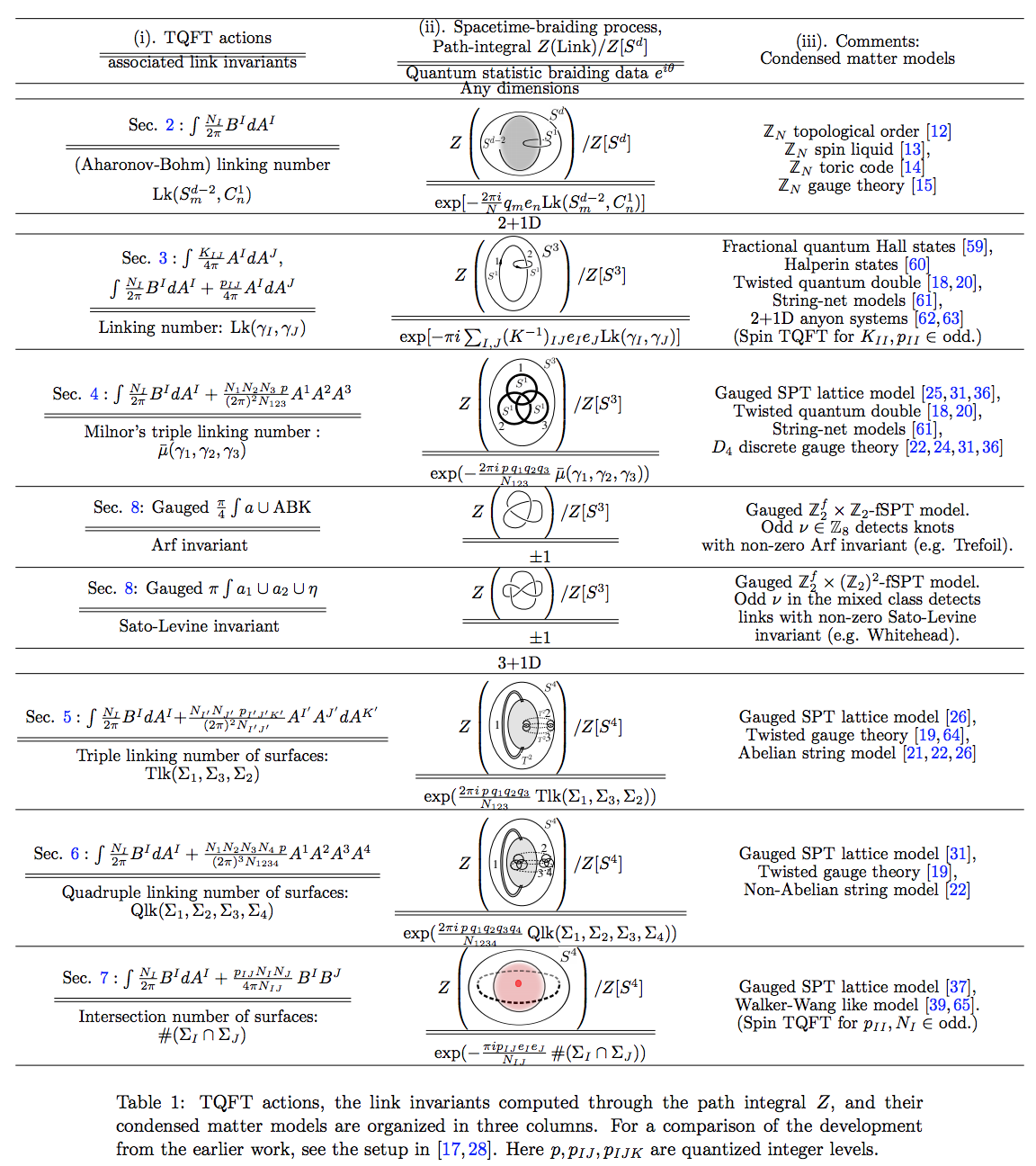My question: Does there exist a discrete gauge theory as TQFT detecting the figure-8 knot?
By detecting, I mean that computing the path integral (partition function with insertions of the knot/link configuration from line operators orof TQFTs), and there is a nontrivial expectation value $$ Z=<\text{knot/link configuration}> \neq \# \exp{(i \theta)}. $$ A nontrivial expectation value means that the $\theta$ is not 0 mod 2 \pi. The number $\#$ depends on the global topology of the spacetime which the link/knot is evaluated at, such as a 3-sphere.
If the answer is negative, is there a way to prove such a discrete gauge TQFT detecting the figure-8 knot make NON-sense?
Background info: One of the best-studied complement space of 3-sphere is that of the figure eight knot, or Listing’s knot, say this space is called M8 (in Thurston book). The analysis is facilitated by the simplicity of the combinatorial structure of M8: it is the union of two tetrahedra, with a corresponding combinatorial decomposition of its universal cover being the tessellation of hyperbolic 3-space by regular ideal hyperbolic tetrahedra.
I know various literature using the discrete gauge theory (such as Dijkgraaf-Witten gauge theory and its generalization) as TQFT to detect their interesting corresponding link invariants. This approach from discrete gauge theory/TQFT (such as a $\mathbb{Z}_N$ gauge theory as level-$N$ $BF$with an action $S=\int_{M^3} BdA$ theory over 3-manifold $M^3$) makes up a nice list, a correspondence can be following:
from this article: Braiding statistics and link invariants of bosonic/fermionic topological quantum matter in 2+1 and 3+1 dimensions
Annals of Physics Volume 384, September 2017, Pages 254-287
https://doi.org/10.1016/j.aop.2017.06.019
Back to My question: the above list of TQFTs as discrete gauge theory do not detect the figure-8 knot. Are there possible other discrete gauge theories as TQFT or more general TQFT can detect the figure-8 knot?
For example, we know the 3d SU(2)$_k$ Chern-Simons gauge theory can detect the figure-8 knot. But the 3d SU(2)$_k$ Chern-Simons gauge theory is a 3d TQFT but NOT a 3d discrete gauge theory.


